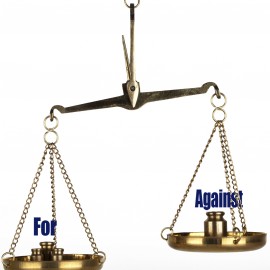How to Talk so Someone With Addiction Will Listen (clinicians)
 Helpful discussions for treatment clinicians & recovery pros
Helpful discussions for treatment clinicians & recovery pros
Useful stories and common sense answers to your questions about challenging cases and clinical issues from Scott McMillin, co-author of “Don’t Help: A Positive Guide to Working With the Alcoholic,” “The Healing Bond: Treating Addictions in Groups,” and five other popular addiction books.
Have a question? Use the form in the sidebar.
space
Twenty-Eight Days
As any case manager knows, making a referral can be a challenge, since many fall by the wayside during transition to another provider, different therapist, etc.
Topics: detoxification, inpatient treatment, opioids, treatment models, types of treatment
Treatment Plan Redux
Addiction programs, conversely, targeted elimination or at least substantial reduction in substance use– a narrower goal that permitted greater focus in treatment.
Topics: clinician skills, defense mechanisms, treatment planning
Cross-Addiction
Newcomers had a tendency to focus their attention on the drug that brought them to treatment, ignoring others they happened to have been using.
Topics: diagnosis, signs and symptoms
“Uninformed” versus “Misinformed”
It’s often true that the folks who are technically most misinformed on an issue have the greatest degree of confidence in the rightness of their beliefs.
Topics: bad information, communication, patient education
Changing the Tipping Point
Try thinking of recovery as a learning process based in experience rather than the acquisition of information.
Topics: consequences, counseling skills, relapse, resistance manipulation ambivalence
Practice versus Knowledge
Most people in stable recovery got there the hard way, through major alterations in the way they live.
Topics: cognitive behavioral therapy, compliance and noncompliance, maintaining sobriety, relapse, therapeutic models
Counseling Clients With Complex Disorders
…progress is the measuring stick. You want your patient to know the joy of a structured, purposeful life.
Topics: co-occurring disorders, counseling skills
Understanding Objections to 12 Step Groups
This is also an opportunity to work on an all-important issue in early recovery: personal boundaries.
Topics: 12Step, Alcoholics Anonymous, discharge planning, maintaining sobriety
Confirmation Bias and Counseling
Project Match has long been held up as demonstrating the efficacy of three very different approaches.
Topics: counseling skills, therapies and tools















